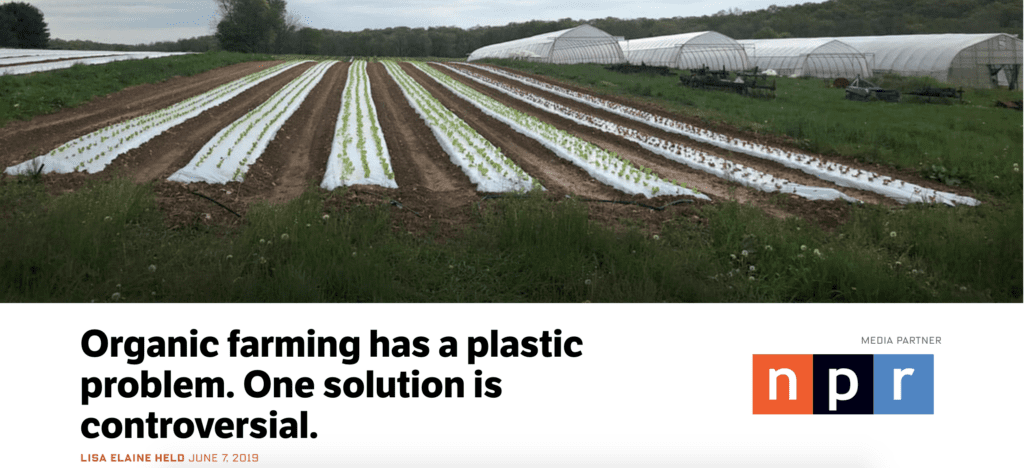Nothing is easy about farming.
Farmers face daily and unending challenges against the weather, pests, disease, and the inherent perishability of their work. The days are long, the work is physical, and much of the outcome depends on increasingly erratic forecasts.
So when a product emerges that makes farmers’ jobs a bit easier and predictable, we feel it is important to carefully review the technology for consideration under our high standards.
Unlike the USDA’s National Organic Program, Certified Naturally Grown accepts the use of biodegradable plastic mulch film or biofilm.
Click here to show that you support CNG’s common sense decision on this material, and keep reading below for more background information on our stance.
You may have seen this recent headline from Food and Environment Reporting Network and NPR’s The Salt:

The piece by veteran agriculture journalist Lisa Held digs into the issues around plastic mulch, which is a popular technology on certified organic farms. While plastic mulch does well to suppress weeds, boost yields, and retain water, at the end of each season the mulch winds up in a landfill where it sits for years to come without biodegrading.
This plastic mulch – which emits toxins when burned – is allowed under the National Organic Program. A biodegradable version of this mulch is currently not allowed under the organic rules.
You may be interested to know that we have a different take on this issue.

While there are no uncomplicated answers around this technology, we believe biofilm offers a sustainable alternative to the commonly used black plastic film made of polyethylene. Biofilm is designed to break down onsite in the farm’s soil, not wind up in a dumpster and then the landfill at the end of the season.
Though this type of biodegradable mulch does contain some petroleum-based products, we listened to our community when they provided input on this technology. We maintain that biofilm’s benefits outweighs its drawbacks.
Biofilm saves labor while reducing waste, and after an extensive review process in 2017 with the same University of Tennessee research team mentioned in the NPR article, we view biofilm as a valuable asset that enhances the sustainability of many farms.
But the use of biofilm on CNG farms does not go unchecked.
Under our standards:
- CNG producers must register their use of biofilm and provide feedback to CNG when requested at the end of the growing season
- Oxo-degradable and photodegradable plastic mulch films are prohibited
- Repeated use of bio-based plastic mulch film in the same location for multiple years in succession is strongly discouraged
- CNG may prohibit continued use of biofilm on a particular property if the degradation rate appears low, according to CNG’s best judgement informed by consultation with inspector
Biofilms aren’t a good fit for all soil types or climates. But we believe farmers should have access to all available tools that can enhance their farm’s sustainability, taken holistically to include social wellbeing, economic impact, and environmental impact.

